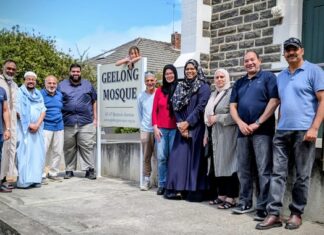GEELONG nightlife initiatives including ID scanners, two-way radios and education campaigns have failed to reduce alcohol-related violence, according to a Deakin University study.
The study found that licensing regulation in Newcastle reduced alcohol-related crime but voluntary measures in Geelong had no impact.
Dealing with Alcohol-related Harm and the Night-time Economy was Australia’s largest study into drunken nightlife crime.
The study compared the effectiveness of Newcastle’s prevention measures through licensing regulation against Geelong’s voluntary programs between 2005 and 2010.
Deakin researcher and study author Associate Professor Peter Miller said measures dealing directly with alcohol consumption had the greatest impact on reducing alcohol-related crime.
“Limiting trading hours was found to be immediately effective in reducing the alcohol-related crime rates in Newcastle,” Prof Miller said.
“This type of intervention comes at no cost to the community and frees up police and other emergency staff to deal with matters other than drunks and alcohol-related violence and should be considered wherever alcohol-related violence is identified as a problem.”
Newcastle’s mandatory regulations included locking patrons out of clubs after 1.30am, closing venues by 3.30am, banning alcohol shots after 10pm and limiting the number of drinks served to individual patrons.
“We found that the number of assaults in Newcastle dropped significantly during the study period while the interventions in Geelong had no impact,” Prof Miller said.
“Other findings included that strong, consistent policing using substantial personal fines is also effective but requires policing levels that are seldom sustained.”
Geelong Nightlife Association president Darren Holroyd said the city’s venues had supported the study.
“Newcastle started from a lot lower base because they had a lot more violence issues, so they had to be more drastic in their approach,” Mr Holroyd said.
“Both approaches have some merit and had some impact (but) it’s a combination of measures. The ones that really work have been ID scanners, closed-circuit TV, two-way radios, the safe taxi rank and improved street lighting.
“Regular police patrols are by far the biggest deterrent.”
Mr Holroyd believed that violence in venues was at an all-time low but drugs and weapons had presented new challenges since the study’s completion.
The nightlife association was open to considering the impact of licensing regulation in Geelong, he said.
Study: City’s drunks crackdown a failure
Digital Edition
Subscribe
Get an all ACCESS PASS to the News and your Digital Edition with an online subscription
Mosque opens to community
Geelong’s community have a chance to explore, learn and connect with the Islamic culture during an Open Mosque Day.
Islamic Society of...








